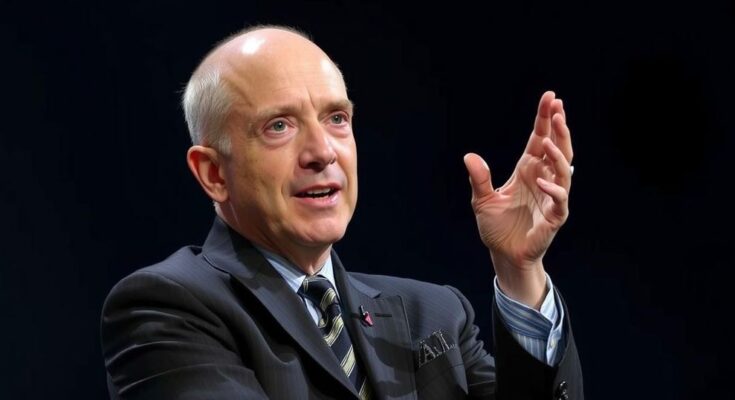Jeff Bezos has defended The Washington Post’s recent decision to discontinue presidential endorsements, citing a need to enhance journalistic credibility and mitigate perceptions of bias. This decision follows significant customer backlash, with reports of 200,000 cancellations of digital subscriptions. Bezos contends that endorsements do not influence electoral outcomes and affirms the choice as principled. The announcement has drawn criticism from some journalists who argue that it undermines the newspaper’s editorial convictions.
Jeff Bezos, the owner of The Washington Post, has publicly defended the publication’s recent decision to refrain from endorsing any presidential candidates ahead of the upcoming election. This decision, as reported by National Public Radio, was made following an incident where approximately 200,000 digital subscriptions were cancelled, with many subscribers expressing displeasure towards Bezos himself, who is also the founder of Amazon and aerospace company Blue Origin. The decision, which became apparent on Friday, reportedly halted an anticipated endorsement of Democratic candidate Kamala Harris. In an opinion piece published in his own newspaper, Bezos articulated that, “most people believe the media is biased” and emphasized the need for The Washington Post, and similar outlets, to preserve or enhance their credibility. He stated, “Presidential endorsements do nothing to tip the scales of an election. What presidential endorsements actually do is create a perception of bias. A perception of non-independence. Ending them is a principled decision, and it’s the right one.” This announcement came less than two weeks prior to the Election Day, raising skepticism among some critics regarding potential motives, including fears of repercussions from a possible presidential victory by Republican candidate Donald Trump. Bezos clarified that this decision was made independently and that no candidate had been consulted or notified beforehand, denying any notion of a quid pro quo arrangement relating to meetings involving Trump and senior Blue Origin officials. William Lewis, the publisher and CEO of The Washington Post, reaffirmed that the newspaper would abstain from endorsing candidates in the current election cycle, stating, “We are returning to our roots of not endorsing presidential candidates.” The decision has sparked concern among The Washington Post’s journalistic staff. Reports indicate that up to 20 columnists have expressed their dissent through personal opinion pieces on the newspaper’s website, with some even opting to resign in protest. Many journalists articulated that the decision represents a detrimental shift away from the core editorial principles that the publication has historically upheld. They asserted, “The Washington Post’s decision not to make an endorsement in the presidential campaign is a terrible mistake,” calling it an abandonment of the newspaper’s foundational convictions. Notably, this decision by The Washington Post followed closely on the heels of a similar declaration by the Los Angeles Times, which openly acknowledged that not endorsing a presidential candidate has severely impacted their subscription base.
The controversy surrounding The Washington Post’s decision to cease presidential endorsements marks a significant transition in the media landscape, particularly among major newspapers in the United States. Historically, endorsements have been a traditional component of election coverage, often seen as a hallmark of a newspaper’s influence and perspective on political candidates. However, given the escalating perceptions of media bias, many outlets are revisiting their stance on endorsements to restore credibility and objectivity, particularly in a politically charged environment. The decision comes at a crucial juncture, with the 2024 Presidential Election nearing, and reflects broader trends and concerns regarding the role of journalism in a democratic society where impartiality is increasingly scrutinized.
In summary, Jeff Bezos’s defense of The Washington Post’s decision to end presidential endorsements highlights a commitment to safeguarding journalistic integrity by eliminating perceptions of bias. Despite criticism from within the journalistic community and among subscribers, Bezos maintains that this principled choice is necessary to enhance the newspaper’s credibility. The discussions surrounding this decision reflect ongoing debates regarding media roles in political processes, as similar choices are made by other influential publications. Ultimately, the ramifications of such a stance will be observed in the upcoming election cycle and in the responses from both audiences and political figures.
Original Source: www.aljazeera.com




